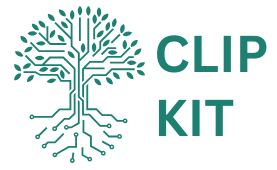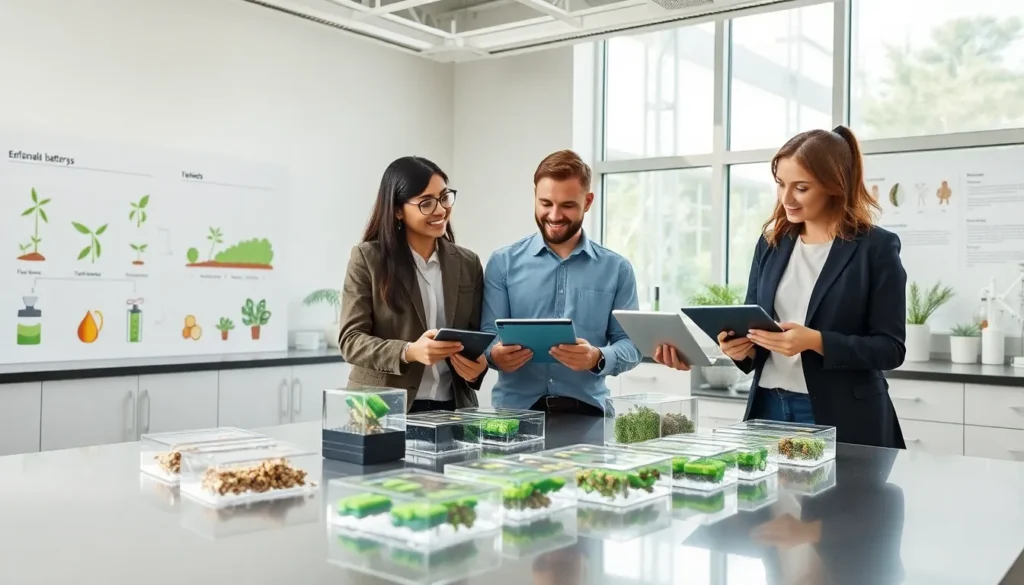Table of Contents
ToggleIn a world where even your refrigerator can remind you to buy milk, why should your garden be left in the dark? Enter smart irrigation systems—the superheroes of the gardening realm. They’re not just about keeping your plants hydrated; they’re about saving water, time, and maybe even your sanity. Imagine a system that knows when your plants are thirsty and waters them while you kick back with a cold drink.
Overview of Smart Irrigation Systems
Smart irrigation systems represent advanced technology that automates the watering process for gardens and landscapes. These systems optimize water usage while ensuring plants receive adequate hydration.
Definition and Purpose
Smart irrigation systems utilize sensors, timers, and software to monitor and manage water delivery. They adjust irrigation schedules based on real-time data, such as soil moisture levels and weather conditions. The primary purpose of these systems is to improve efficiency, reduce water waste, and promote healthy plant growth. By responding to environmental changes, smart systems enhance gardening practices and minimize human intervention.
Importance in Agriculture
In agriculture, smart irrigation systems play a crucial role in resource management. They facilitate precision agriculture by providing targeted watering to crops, leading to increased yields. Water conservation becomes a priority as these systems significantly lower water consumption by applying only what is necessary. Farmers benefit from the reduction of water costs and more sustainable practices. Ultimately, these systems foster healthier ecosystems and contribute to food security through reliable crop production.
Benefits of Smart Irrigation Systems
Smart irrigation systems offer numerous advantages, making them a valuable choice for gardeners and farmers. Their features enhance water management and crop productivity.
Water Conservation
Water conservation stands out as a significant benefit of smart irrigation systems. These systems utilize real-time data to deliver precise watering schedules. By monitoring soil moisture levels, they adjust irrigation based on plant needs. Research indicates that smart irrigation can reduce water usage by up to 50%, contributing greatly to sustainability. Minimizing water waste protects vital resources and supports environmental health. Employing these systems means conserving water while promoting efficient irrigation practices.
Cost Efficiency
Cost efficiency represents another major advantage. Smart irrigation systems lower water bills by using only the amount necessary for optimal plant health. Automated adjustments eliminate the need for manual watering, reducing labor costs. According to studies, farmers can save an average of 20% on water expenses with these systems. Reliability in water supply also leads to diminished losses from crop failure. Investing initially in smart technology pays off in the long run through sustained cost savings.
Improved Crop Yield
Improved crop yield correlates closely with smart irrigation systems’ implementation. They provide consistent moisture levels critical for plant growth. By delivering water precisely when it’s needed, these systems enhance overall plant health and productivity. Crops grown with smart irrigation often yield 10-20% more than those relying on traditional methods. Greater efficiency in water use fosters healthier ecosystems, ultimately supporting food security and sustainable agriculture. Adopting this technology leads to significant advancements in crop management.
Types of Smart Irrigation Systems
Smart irrigation systems come in various types, each designed to meet specific needs. These systems enhance water conservation and improve plant health through advanced technology.
Drip Irrigation Systems
Drip irrigation systems deliver water directly to the plant roots through a network of tubes and emitters. This targeted approach reduces water evaporation and runoff, making it extremely efficient. Users often see water savings of up to 60% compared to traditional methods. Maintenance is relatively simple, ensuring consistent performance. These systems are particularly beneficial for gardens, orchards, and greenhouses due to their precision.
Sprinkler Irrigation Systems
Sprinkler irrigation systems distribute water over a wider area using rotating or stationary spray heads. These systems adapt to various landscapes, from residential lawns to agricultural fields. Incorporating timers and smart controllers allows users to optimize watering schedules based on weather conditions. Water conservation is significant, with numerous studies suggesting reductions in water use of 30% or more. Their versatility makes them a popular choice for effective irrigation.
Sensor-Based Systems
Sensor-based systems utilize soil moisture and climate sensors to determine when and how much water is needed. These technologies provide real-time data, ensuring plants receive appropriate hydration without overwatering. Users can expect up to 50% reductions in water usage with such systems. Integration with smart devices allows for convenient monitoring and control. Their ability to adjust to changing conditions significantly enhances overall irrigation efficiency.
Technologies Used in Smart Irrigation
Smart irrigation systems rely on several advanced technologies. These technologies enhance water efficiency while ensuring optimal plant health.
IoT and Connectivity
Internet of Things (IoT) technology plays a significant role in smart irrigation. Devices connect seamlessly to the internet, enabling remote monitoring and control. Users can receive real-time data on soil conditions and water usage through mobile applications. Such connectivity allows for immediate adjustments to watering schedules, optimizing resource usage. Enhanced communication between devices promotes more responsive irrigation practices.
Weather-Responsive Controls
Weather-responsive controls factor in local climate conditions for improved irrigation management. These systems adapt watering schedules based on forecasts and real-time weather data. When rain is expected, systems can delay or reduce watering to conserve water. By automatically adjusting to changing weather patterns, smart irrigation systems enhance efficiency while promoting healthy plant growth.
Soil Moisture Sensors
Soil moisture sensors provide critical data for effective irrigation management. These sensors gauge moisture levels in the soil, ensuring plants receive adequate hydration without overwatering. When soil moisture falls below a certain threshold, systems automatically trigger irrigation. Implementing these sensors can lead to water savings of up to 50%, significantly reducing waste and enhancing plant health.
Challenges and Considerations
Smart irrigation systems present unique challenges and considerations that potential users must address. Evaluating costs and technical knowledge requirements plays a vital role in successful implementation.
Initial Investment Costs
Initial investment costs can be a barrier for many users. Smart irrigation systems vary in price, from a few hundred to several thousand dollars, depending on the technology and setup complexity. For example, a basic drip irrigation system typically costs around $500, while advanced sensor-based systems may reach $5,000 or more. Users should also factor in installation expenses, which can add another 15% to 25% to the total cost. Despite high upfront expenses, long-term savings on water bills, often averaging a 20% reduction, can offset initial investments.
Technical Knowledge Requirements
Technical knowledge requirements pose another challenge. Users may need familiarity with system components, software, and sensors to operate smart irrigation effectively. Understanding how to interpret data from sensors and configure settings can prove crucial for optimizing water usage. Many systems come with user-friendly interfaces, yet users without a background in technology may find them daunting. Training sessions or support from professionals can bridge knowledge gaps, ultimately enhancing system efficiency. Overall, a willingness to learn and adapt promotes successful implementation and performance of smart irrigation systems.
Conclusion
Smart irrigation systems represent a transformative approach to water management in gardening and agriculture. By leveraging advanced technology these systems not only enhance water conservation but also promote healthier plant growth. The integration of sensors and real-time data allows users to optimize their irrigation practices while minimizing waste.
Though initial costs may seem daunting the long-term benefits far outweigh the investment. With improved efficiency and potential savings on water bills smart irrigation systems pave the way for sustainable practices that support both the environment and food security. Embracing this technology is a step toward a more responsible and productive future in agriculture.




